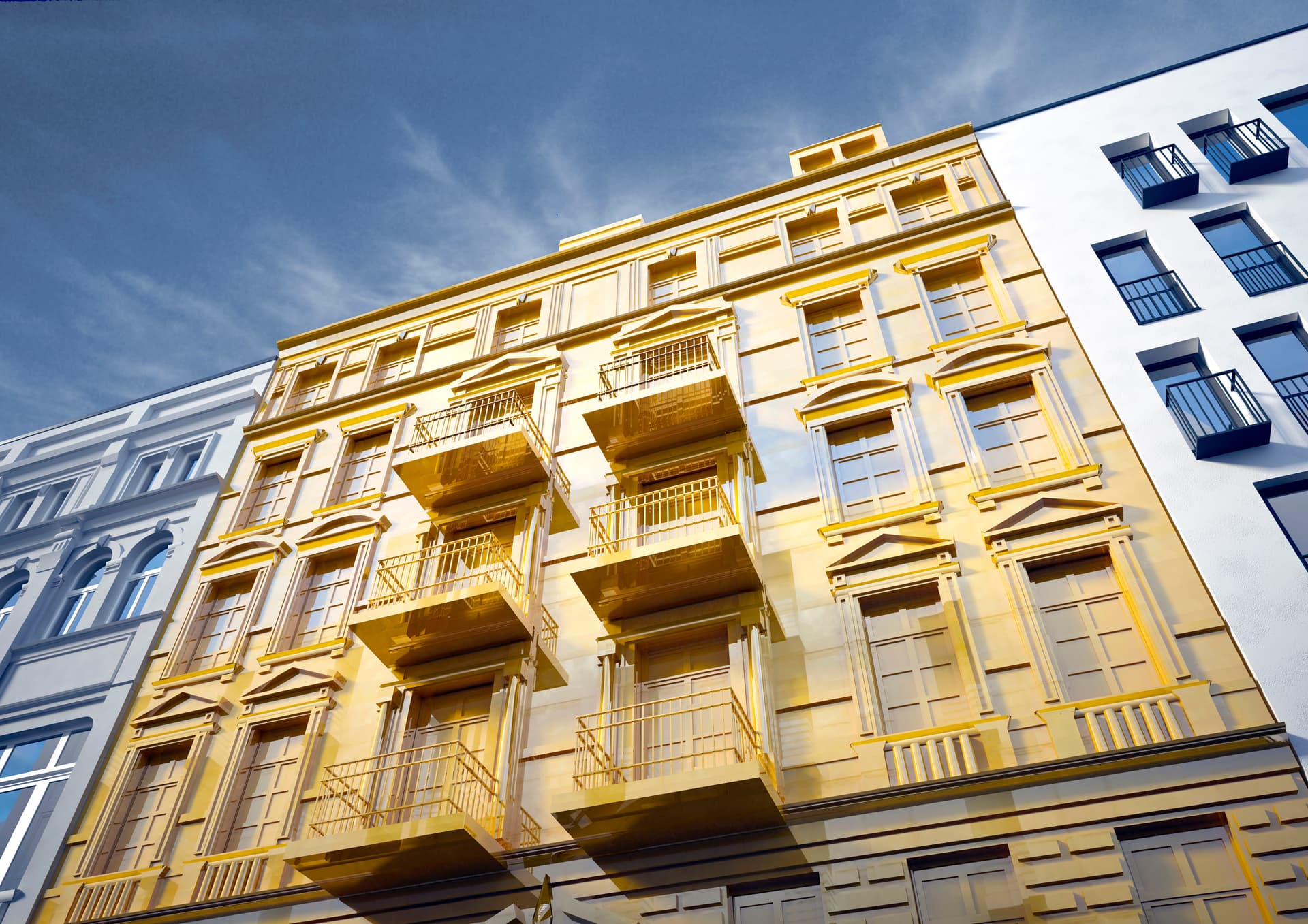Inflation and high interest rates - how can I afford real estate now?

28.
November 2022
The past few years: the dream of low interest rates
If you look back at the past decade, you see a veritable land of milk and honey for real estate buyers. The low and sometimes even negative interest rate policy of the European Central Bank (ECB) meant that it was not difficult to get a loan from any bank to finance your own four walls. This was because: the interest rate was zero and bank customers did not have to pay back a cent more than the exact amount they had borrowed from their bank. This reduction in interest rates was intended to stabilize the European economy again after the financial crisis of 2008/2009. The flipside of the coin was that money saved in one's own account did not yield any interest either, and money stashed away in savings accounts even slowly lost value. Moreover, because financing was so easy, the demand for real estate and its prices rose enormously.
A lot has happened since then. The crises of recent years and, most recently, Russia's war of aggression against Ukraine have put an end to the low-interest phase: In order to stop galloping inflation, the ECB has intervened and raised the key interest rate - most recently in October to what is now two percent. For real estate buyers, this means that it is now no longer easy to finance a property with the help of borrowed capital, as banks have to obtain the money themselves from the central bank at much more expensive conditions. They pass on these additional costs to their customers. Since this also increases the risk that customers will not be able to repay a loan, banks now scrutinize every loan more strictly.
From dream to nightmare: war and crisis
Inflation in Germany reached over ten percent in October, according to the Federal Statistical Office. This means nothing other than that a currency noticeably loses value - whether in cash or in an account - and consumers thus lose purchasing power. They can simply buy fewer things for the same amount. As already explained, savers have not received any interest on their money for years. What many still have left is now threatening to melt away due to inflation. If you want to avoid this, you should invest your money in real assets. Unlike cash, these do not lose value in the course of inflation. In addition to real estate, these include stocks and precious metals such as gold.
The question as to which of these forms of investment make sense, especially for private investors, is quickly answered. The value of shares fluctuates on the stock market from day to day, in some cases considerably, and in addition comprehensive specialist knowledge is required for a sensible investment strategy. Precious metals are less exposed to strong price fluctuations, but are still not necessarily the best investment. Although gold in particular is in high demand and does not lose value due to inflation. Unlike real estate, however, precious metals do not yield regular returns. Only real estate combines inflation protection with income potential in a special way. However, only if you handle residential property properly.
Only real estate as an investment provides protection against inflation
Investing in real estate effectively protects you from the effects of inflation - but only if you don't use the property yourself. Why? Your own home suffers from the effect of inflation just as much as monetary assets. Because the interest rates on the loans you use to pay off your own four walls are rising - as are the maintenance costs, which are skyrocketing even higher due to the current energy crisis in Europe. The dream of owning your own home thus quickly becomes a nightmare.
So for a real estate investment to reliably protect you from inflation, you need to use it as an investment - in other words, you need to rent out the house or apartment(s). That's because the rental income generated by doing so can be adjusted for inflation, providing a unique inflation protection that no other form of investment can offer. In addition to this income, there is the actual increase in the value of the property. After all, real estate is a scarce commodity and will remain so in the future: Building land is scarce in Germany, new buildings are rare, especially in metropolitan areas, and demand will remain high. So with an investment property, you can generate income and build wealth at the same time - a unique combination.


Why values will increase
The ACCENTRO Home Ownership Report shows that real estate prices continue to know only one path: upward. The report records 19.4 percent growth in sales for the German residential market, from 36 billion euros to a record level of nearly 43 billion euros. Overall, there were 4.4 percent more transactions than a year earlier, and the average apartment price rose to 250,272 euros, and even to 456,233 euros in the top 8 cities. In addition to metropolises such as Berlin, cities in eastern Germany, such as Leipzig and Chemnitz, also stood out in 2021, recording the most sellers per 1,000 inhabitants. This shows: Not only the largest metropolitan areas, but also medium-sized cities have enormous potential and are attractive to investors. What's more, sales are rising, while demand remains high and home ownership a scarce commodity. So real estate prices will only continue to rise.
Cost overview thanks to a financing calculator
What costs you can expect for a real estate investment depends, of course, on many factors, not least the purchase price of the property, the federal state in which you want to buy, and the current interest rates on the market, as well as the conditions that your bank can offer you. Portals such as the Immobilienscout website offer various calculators for construction financing, for example, which can help you get an idea of what costs you will be faced with, what conditions are realistic and what equity you will need to fulfill your dream of owning your own four walls.

Can I afford a property?
If you are asking yourself this question, the following rule of thumb will help you: it is generally recommended that you spend 30 to 35 percent of your monthly net income on interest and repayments. However, don't forget incidental expenses, which include electricity, heating, water, insurance costs and taxes. Including these, 40 to 45 percent of the monthly net income will be due.
You should also consider how much equity you can contribute to the purchase. The more money a bank has to inject, the higher the interest rate. This is usually 60 percent of the mortgage lending value - i.e. the amount of money that the bank makes available to you. Example: If you want to buy a property worth 500,000 euros and use more than 300,000 euros in borrowed capital to do so, the bank sees this lending to you as riskier and charges more money accordingly: around 3.3 or 3.5 percent instead of just three percent. It is now almost impossible to borrow the entire amount - the risk has simply become too great for the banks.
Despite everything: interest rates still historically low
Even though interest rates have risen considerably this year - historically speaking, we are still in a low-interest phase. Interest rates were already at two percent ten years ago and significantly higher before that. Since a further rise in interest rates is not only likely, but has already been all but announced by the ECB, now is the time to invest. However, keep in mind that a real estate purchase can involve a long financing period - usually 30 to 35 years.
Do you have any questions? ACCENTRO can help you with everything!
Are you looking for the right residential property or do you have other questions about buying or investing in real estate? Feel free to contact us if you are interested - as experts in real estate as an investment or for owner-occupancy with specific investment opportunities, we at ACCENTRO are here to assist you with any questions you may have and help you find the property or properties that best fit your needs.